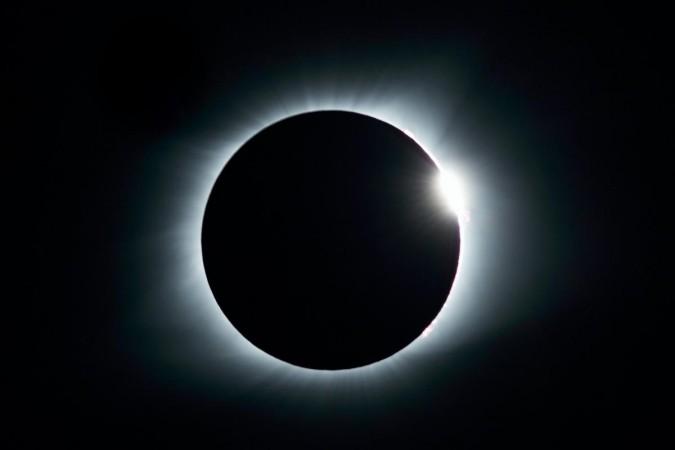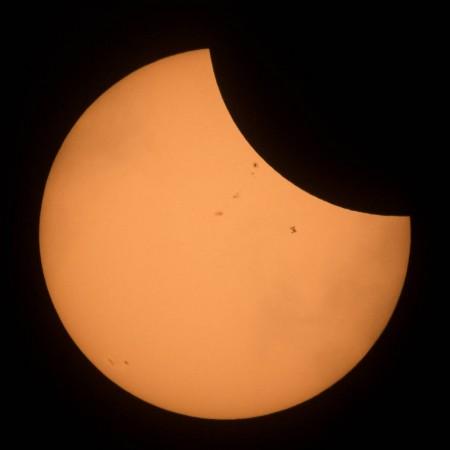On 21st June, the annular solar eclipse will be taking place at around 9:15 am (IST). This eclipse takes place once a year and is the first of 2020. The eclipse occurs when the moon is between the Earth and the moon covers the Sun such that the outer rim of the Sun is seen, called the ring of fire.
India will be experiencing the deepest annular solar eclipse of the 21st century this Sunday. During the eclipse for nearly 30 seconds, the Sun will appear as a necklace of pearls to a stretch between Rajasthan, Haryana and Uttarakhand.

Solar eclipse 2020: Date, time and locations
The annular solar eclipse is all set to take place on 21st June, this eclipse occurs when the Sun, Moon and the Earth are in a straight line, and the Moon covers the Sun. On Sunday, the solar eclipse is expected to be thin according to scientists, as the Moon will cover over 98.8% of the Sun.
The Solar eclipse is an astronomical event in India as the next solar eclipse visible in the country will occur 11 years later. Due to the pandemic, this time the eclipse will not see tourists and photographers from around the world rushing to the country to view the eclipse.
Most of India will experience the eclipse but only certain districts and regions from Haryana, Uttarakhand and Rajasthan will witness the phenomenon of Baily's Beads, where instead of the ring of fire, the Sun's corona appears will appear as a necklace of shiny beads.
Here are the timings as available on timeanddate.com:
Timings in India:
- First location to see the partial eclipse begin: 09:15:58
- First location to see the full eclipse begin: 10:17:45
- Maximum Eclipse: 12:10:04
- Last location to see the full eclipse end: 14:02:17
- Last location to see the partial eclipse end: 15:04:01
Timings in Kolkata:
- Partial Eclipse Begins: Sun, 21 Jun 2020, 10:46
- Maximum Eclipse: Sun, 21 Jun 2020, 12:35 0.73 Magnitude
- Partial Eclipse Ends: Sun, 21 Jun 2020, 14:17
- Duration: 3 hours, 31 minutes
Timings in Delhi:
- Partial Eclipse Begins: Sun, 21 Jun 2020, 10:20
- Maximum Eclipse: Sun, 21 Jun 2020, 12:01 0.95 Magnitude
- Partial Eclipse Ends: Sun, 21 Jun 2020, 13:48
- Duration: 3 hours, 29 minutes
Timings in Mumbai:
- Partial Eclipse Begins: Sun, 21 Jun 2020, 10:00
- Maximum Eclipse: Sun, 21 Jun 2020, 11:37 0.70 Magnitude
- Partial Eclipse Ends: Sun, 21 Jun 2020, 13:27
- Duration: 3 hours, 27 minutes
Timings in Chennai:
- Partial Eclipse Begins: Sun, 21 Jun 2020, 10:22
- Maximum Eclipse: Sun, 21 Jun 2020, 11:59 0.46 Magnitude
- Partial Eclipse Ends: Sun, 21 Jun 2020, 13:41
- Duration: 3 hours, 19 minutes
Timings in Bengaluru:
- Partial Eclipse Begins: Sun, 21 Jun 2020, 10:12
- Maximum Eclipse: Sun, 21 Jun 2020, 11:47 0.47 Magnitude
- Partial Eclipse Ends: Sun, 21 Jun 2020, 13:31
- Duration: 3 hours, 19 minutes
Solar Eclipse 2020: Safety first
Eclipses have often been a difficult matter to understand in terms of precautions to take, due to the many myths which we have all heard growing up. While it's not necessary to heed superstitions, there are some best practices to protect yourself and those viewing the eclipse with you.

According to NASA, nobody is advised to directly view the eclipse through the naked eye. Instead, use special-purpose solar filters of aluminised Mylar, black polymer and welding glass of shade number 14 (no lesser) and 'eclipse glasses' to protect your eyesight suggests the Ministry of Earth Sciences. This implies refraining from using homemade filters and ordinary sunglasses.
While viewing the eclipse, shield your eyes before looking up, and only remove the glasses after you look entirely away or the solar eclipse is over. If you wear regular glasses then no need to fear, eclipse glasses go over them, if you wish to view the eclipse.
Avoid using cameras to take a picture, however tempting, even if you have eclipse glasses on, as you may allow concentrated solar rays to enter your eyes causing irreparable damage. Children would need supervision while viewing the eclipse.
Witnessing an eclipse and watching one can be a very educational and glorious experience, don't let the risk keep you from enjoying the eclipse, all you need to take are a few precautions. Safe eclipse viewing!

















